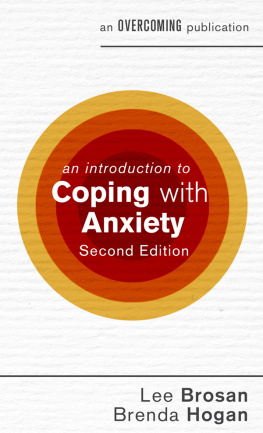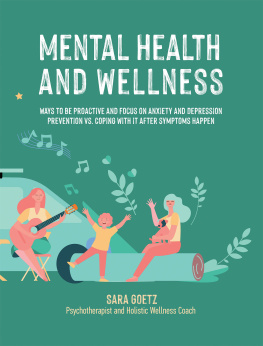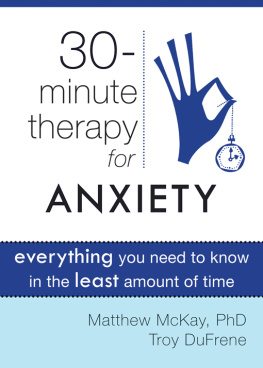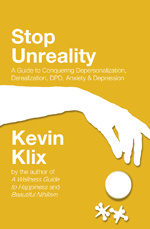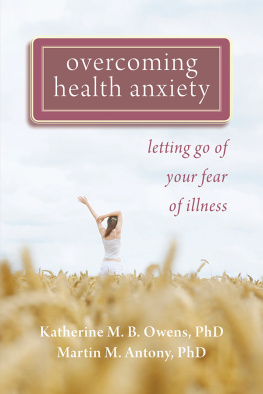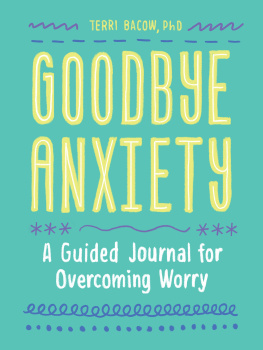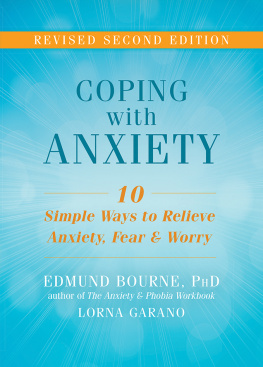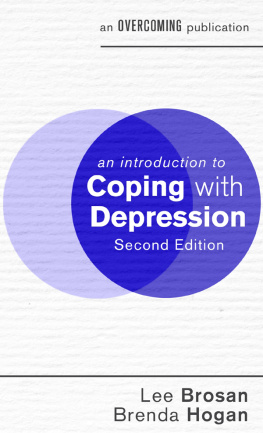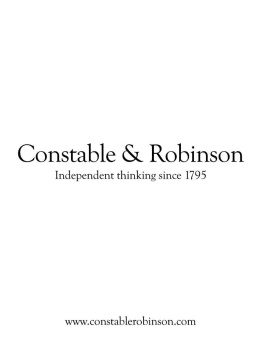Most of us feel anxious at certain times in our dayto-day lives for instance when we feel scared or threatened by a situation and think that we may not be able to deal with it effectively. Taking an important exam, going to a job interview and making a public speech are some of the situations people often describe as anxiety-provoking. Usually, as the situation passes, the anxiety drops. While everyone feels anxious at times, for some of us anxiety can seem unbearable and unmanageable.
For some people, anxiety never seems to go away, even when the problems they face are minor, or would seem manageable to others. And a few experience such extreme anxiety that it begins to interfere with their daily lives and they feel they just cant cope any more. This can be confusing and frightening, and they may start to worry that it will never get any better.
then gives you practical skills you can use to combat the symptoms of anxiety in three important areas your physical symptoms, your thinking and your behaviour. By understanding and learning these key skills you can turn your problems with anxiety into things of the past.
Its often helpful to write things down, and of the book describes several exercises that will help you cope with your anxiety on a day-to-day basis, with completed examples to guide you. Its a good idea to have a notebook handy when you begin to work through these, so that you can keep a record of your thoughts, feelings and progress, as suggested in the various exercises.
Good luck!
Brenda Hogan and Lee Brosan
An Introduction to Coping with
Anxiety
2nd Edition
Brenda Hogan
and
Lee Brosan

ROBINSON
First published in Great Britain in 2018 by Robinson
Copyright Brenda Hogan and Lee Brosan, 2018
The moral rights of the authors have been asserted.
All rights reserved.
No part of this publication may be reproduced, stored in a retrieval system, or transmitted, in any form, or by any means, without the prior permission in writing of the publisher, nor be otherwise circulated in any form of binding or cover other than that in which it is published and without a similar condition including this condition being imposed on the subsequent purchaser.
A CIP catalogue record for this book
is available from the British Library.
Important note
This book is not intended as a substitute for medical advice or treatment. Any person with a condition requiring medical attention should consult a qualified medical practitioner or suitable therapist.
ISBN: 978-1-47214-023-4
Robinson
An imprint of
Little, Brown Book Group
Carmelite House
50 Victoria Embankment
London EC4Y 0DZ
An Hachette UK Company
www.hachette.co.uk
www.littlebrown.co.uk
www.overcoming.co.uk
Contents
Anxiety is a normal part of being human. As we have discussed, in many situations it is adaptive, or helpful, for us to experience anxiety it can keep us out of harms way and can motivate us to take action. It is important to remember that coping with anxiety does not involved getting rid of anxiety completely. Rather, your goal should be to better manage your anxiety so that you can live a calmer, happier life.
It may be helpful to think about your anxiety response like an overly sensitive smoke alarm. You do not want to get rid of the smoke alarm in your home as that would be dangerous. Rather, you want to make sure your smoke alarm only goes off when it is necessary not when you burn the toast! The same holds true for anxiety. You do not want to get rid of anxiety. It is there for a reason you need it, but not all the time. You want to make sure that you are not experiencing anxiety in response to situations that dont warrant it.
Sitting an exam, going for a job interview, meeting future in-laws, having to make a complaint at your childs school there are many situations that may make you feel anxious just by thinking about them, and dealing with the actual event can be a major ordeal. Worrying is usually a major part of anxiety, and for people who struggle with anxiety, it may feel uncontrollable. But worrying isnt the only problem! Anxiety affects the way we feel, both emotionally and physically, and the way we act. The following symptoms are common:
feeling nervous, anxious or frightened
feeling irritable or easily upset
having difficulty concentrating or focusing
heart beating faster (or heart flutters)
shortness of breath
sweating
trembling
tense muscles
dry mouth
feeling sick/stomach upset
butterflies in the stomach
feeling light-headed
difficulty sleeping
a desire to avoid or escape the anxiety-provoking situation.
Feeling anxious can make life miserable. You can end up worrying too much, going over and over the worries in your mind, and finding it simpler just to avoid or leave situations that are likely to cause you anxiety.
Anxiety tends to affect your body (physical symptoms), the way you feel, the way you think, and the way you act. This can be a helpful way to think about anxiety, and we will discuss this more below.
Before we go on, however, lets start to demystify the experience of anxiety. The first step to overcoming anxiety is to understand anxiety and recognise it for what it is. Sometimes people have beliefs about anxiety that make it seem a lot worse, or more dangerous, than it really is. Understanding some of the basic facts about anxiety can be helpful.
Some Facts About Anxiety
1. Anxiety is normal. You would be hard-pressed to find anyone who has not experienced anxiety at some point! Anxiety is a normal and expected part of the human experience.
2. Anxiety is adaptive. This means that anxiety exists in order to help and protect us. Anxiety helps us deal with danger (e.g. to quickly jump out of the way of a speeding car) and to perform at our best (e.g. anxiety is what motivates us to prepare for important situations, such as a big presentation at work).
3. Anxiety is NOT dangerous. Anxiety does feel highly uncomfortable, but it is not dangerous. Remember, anxiety is there to help and protect us, not harm us.
4. Anxiety does not last for ever. Feelings of anxiety may increase at times, but they will always come down again. Anxiety may feel like it is going to last for ever, but it is temporary.
5. Anxiety is invisible. Worrying, as well as the emotional and physical feelings of anxiety, are things that happen on the inside. Even though it may feel like our anxiety is apparent to all around us, others do not usually know we are anxious unless we tell them.
6. Problems with anxiety are common. You are not alone!
Anxiety impacts us physically and emotionally, and affects the way we think and the way we behave. Understanding how anxiety works is an important part of making it more manageable.
How Does Anxiety Affect Your Body?
I start getting hot and sweaty and my mouth gets really dry. My heart pounds in my chest. Sometimes I even find it hard to breathe. The worse I feel, the more I want to run away
You may have heard of the fight-or-flight response. This is a physical response that occurs in alarming circumstances your reaction will either be to fight in order to protect yourself or to run in order to escape the danger (another option is to freeze in order to make yourself less noticeable). This is our bodies safety mechanism designed to allow us to respond in an emergency. It is associated with many physical changes:

